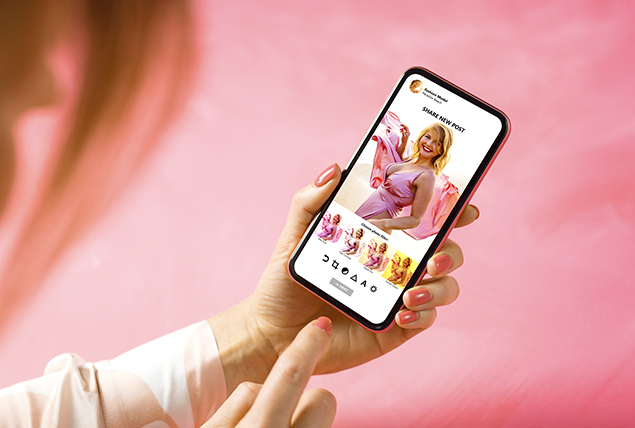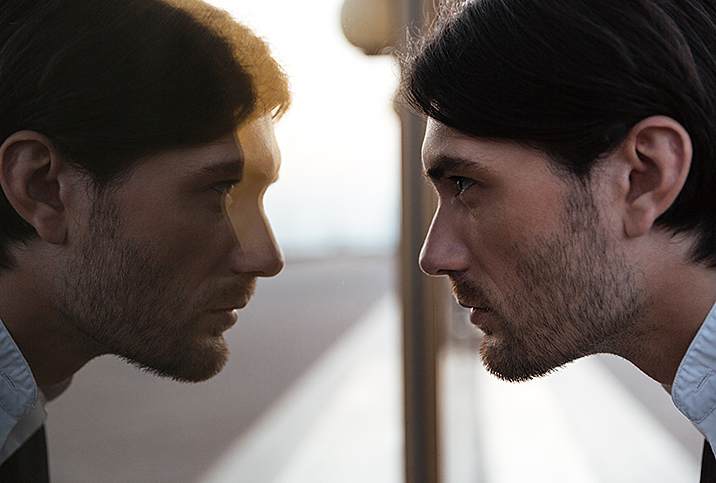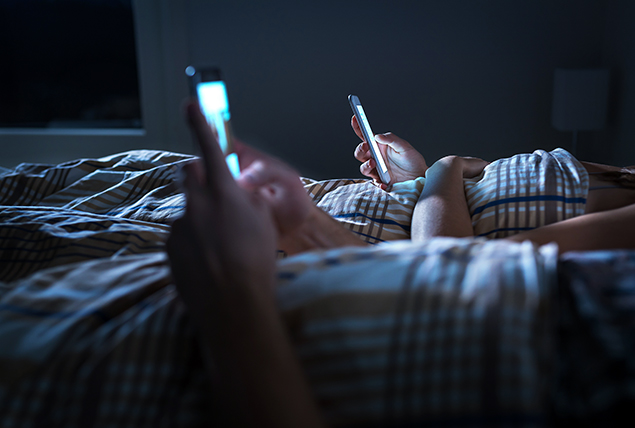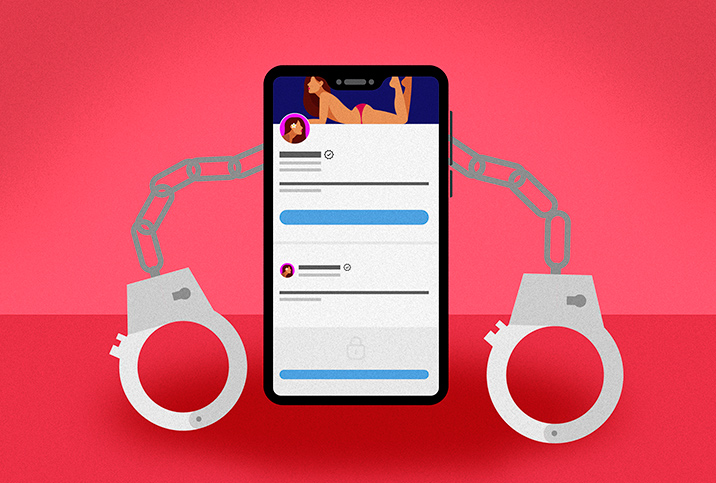Can Social Media Filters Harm Mental and Emotional Health?

Key Points:
- Research indicates a link between social media and body dysmorphia, among other mental health challenges.
- Filters and editing tools that "improve" people's appearance are part of the problem.
- Extensive photo editing can harm the mental and emotional health of the creator who posted the image as well as those who viewed it.
An increasing number of influencers and everyday users take to social media to discuss mental health matters, a once-taboo topic. However, despite the potential to facilitate productive discussions and positive change, certain aspects of these platforms—such as filters—may harm people's emotional well-being.
In the age of selfies and social media, filters have become easy and popular tools to enhance online images. Some make minor changes—such as lightening dark under-eye circles or applying a more flattering light—but others can dramatically alter a person's features to conform to a specific and mostly unattainable standard of "beauty."
The depiction of beauty perpetuated in magazines, TV and film has always been problematic. According to research, social media has been especially harmful to mental and emotional health. The ubiquity of edited and carefully curated online images can distort people's self-perception, heighten upward social comparisons, and contribute to issues such as low self-esteem, body dysmorphia, eating disorders, depression and anxiety.
All of which can profoundly affect relationships and sexual health.
What's the link between filters, body image and eating disorders?
"Occasionally filtering or editing photos to make minor adjustments or experiment with new looks—like a different hairstyle or lipstick shade—may be harmless," said Jennifer Reinwald, Ph.D., an assistant professor and social media researcher at Widener University in Chester, Pennsylvania.
Research suggests people who consistently "improve" their on-screen appearance may begin to feel "less than" in real life. As though anything short of their artfully constructed digital image isn't worthy of love. In turn, they may experience myriad mental health effects, including eating disorders, crippling depression or debilitating anxiety.
"My experience with beauty filters has been horrible, so much so that I vowed never to use them again," said Riyah Sargenton, a small business owner, blogger and administrative assistant from New York City.
Sargenton started using filters in high school, at first "jokingly," but then in earnest. Gradually, she began to feel she wasn't attractive without being "filtered."
"I truly felt that without them, I wasn't pretty and needed the filters to attract male attention," she said. "In high school, men often bullied me for not looking the same as the images I posted online with social media filters. Most would even go as far as saying that I should look into permanent real-life filters to enhance myself."
Sargenton became increasingly self-conscious, depressed and reliant on the filters for external validation. In college, she experienced her first mental breakdown as a result.
"I couldn't stand the way I looked in the mirror without a filter. During that time, I thought that if I couldn't look like the filters, then I shouldn't exist because nobody wants an ugly person in their lives," she said. "Although I now have a loving partner who encouraged me to change my thoughts because I didn't need filters to find beauty, at that time, I just couldn't—especially when I knew the type of women considered attractive and worthy online."
She's not alone.
One study found editing selfies caused people to feel less satisfied with their faces and more unhappy overall. Even Facebook's internal data confirms Instagram is detrimental to mental and emotional health, especially for teens who identify as female.
Research has also demonstrated a correlation between social media and body dysmorphia.
The condition existed long before the internet, but research suggests dysmorphia and other body image issues have become increasingly prevalent in the digital age. How prevalent? To the extent that a new term, "selfie dysmorphia" or "Snapchat dysmorphia," was coined to describe a specific subset of the condition.
"Many mental health providers have witnessed firsthand the connection between social media, emotional health, body image and eating disorders. A rising number of patients are dissatisfied with their appearance, in part, at least, due to the adverse effects of social media and photo-enhancing tech," said Steven Schlozman, M.D., associate professor and chief, Division of Child and Adolescent Psychiatry, at the University of Vermont in Burlington.
"In my clinical psychotherapy practice, where I treat eating disorders, body dysmorphia and self-esteem, I have seen a tremendous rise in body dissatisfaction due to social media," said Mary Dobson, L.M.F.T., a certified eating disorder specialist who practices in Boca Raton, Florida, and Westport, Connecticut.
These implications can produce a ripple effect that permeates various aspects of a person's life, including their sexual health. Social media and its filters can diminish a person's confidence. In addition, they may cause body image and self-esteem issues that can impede intimacy and contribute to social isolation for some.
Depression, anxiety and eating disorders are also linked to low libido, erectile dysfunction (ED) and difficulty with orgasm.
Recommended
- Is the Social Media Age Killing Female Orgasms?: Comparing yourself to others—even subconsciously—can take a toll on your body image and sex life.
- Automatic Negative Thoughts Can Contribute to Body Dysmorphia: Along with therapy and medication, lifestyle adjustments are often key to recovering from body dysmorphia. Changing your media diet may be one important aspect.
- The Rise of Muscle Dysphoria in Men: Not everyone with an eating disorder or body dysmorphia is thin, rich, white and female. People of all genders, backgrounds and ethnicities can suffer.
How do filters affect viewers' mental and emotional health?
The effects of highly edited photos can impact viewers as much as creators. Seeing others who are seemingly perfect can potentiate poor mental and emotional health, according to a 2016 systematic review and other research.
"Social media is saturated with filtered images, which can lead to engaging in upward social comparisons—when we compare ourselves to those we perceive as better than us," said Maureen Coyle, Ph.D., an assistant professor at Widener University in Chester, Pennsylvania, whose research focuses on how media and tech influence interpersonal and romantic relationships. "Upward social comparisons are related to lower self-esteem and self-confidence. Upward social comparisons have also been linked to negative mental health outcomes like higher depression and anxiety—both general anxiety and anxiety about one's physical appearance."
These comparisons—and their effects—still occur when people realize intellectually that social media isn't a reflection of real life, according to Cherie Miller, L.P.C.-S., a therapist specializing in eating disorders in Southlake, Texas.
"Our brains normalize what they see over and over, so when we continually see filtered images, we begin to believe that's what people like and, therefore, what we should look like," she said. "Incredibly, research shows that's true even if we're told the images are altered."
Even seeing pictures of women on social media with makeup can make other people who identify as female feel less satisfied with their own faces, Coyle said, citing a 2019 study.
"Moreover, the prevalence of certain filters reflects societal beauty norms, which can be narrow and exclusionary, heightening the adverse effects for people who don't adhere to the—usually cishet and Eurocentric—standard," she added.
For instance, many filters lighten eye color, shrink the nose and give users rosy cheeks. Others change skin tone, enlarge the eyes or slim the face and body.
"Beauty filters are designed with a singular understanding of what beauty is. If someone who does not match a Eurocentric standard of beauty applies a filter or if a filter is automatically applied, it can send a message that their body does not match up with what the filter says is beautiful," Reinwald said. "This can add to further feelings of alienation and a dip in self-confidence.
"Rather than celebrating an individual's unique appearance, these filters homogenize what is beautiful and exclude those who fall outside those boundaries."
It's a recurring theme, said Rusheen Hemley, a model and content creator from the West Midlands, England, who also had negative experiences with beauty filters and the pressure to conform to narrowly defined, unattainable standards. She said runway shows and magazine covers have traditionally been dominated by young, skinny, white models, and social media has largely upheld that status quo.
"When I was growing up, I was bombarded with images of the European standards of beauty, and I didn't feel beautiful as a black girl," Hemley said. "As social media became more prominent in my adult years, it set me back as there was also a standard of beauty being pushed there."
Is Kissing Considered to Be More Intimate Than Sex?: For some, locking lips is considered the top-tier method of physical intimacy. An intimate kiss may not be sexual, but for many, it's the ultimate foreplay.
Hyper-realistic filters have only made matters worse
People tend to feel negatively when comparing themselves to a seemingly "perfect" image, even if they know it's been altered, according to research.
"With hyper-realistic filters like TikTok's controversial 'Bold Glamour,' it isn't always possible to tell, which may amplify body dissatisfaction," Reinwald said. "Although many filters give themselves away when a person moves in a video. This one, though, is more insidious, giving no hint of its unreality."
Between the resurgence of thin idolization and increasingly high-tech photo enhancements, it feels like the body acceptance movement is in reverse, while the line between reality and fiction is blurrier than ever, said Britta Hawkins, a legal assistant in Spokane, Washington. She added that filters and social media have had a marked negative impact on her and her friends' body image and mental health.
"It's very safe to say our perception of reality is even more warped than it used to be. It's not obvious when people are filtered or airbrushed. Some of the art I've seen recently is completely created by AI—which is cool—but the people are not even real," she said. "It's a total fantasy realm, beyond our wildest imaginations.
"This can lead to an entirely new era—and it will—of creativity, but we should value 'our realness.' This isn't just slightly altering humans anymore. That's what it used to be. It's now redesigning what humanity looks like and presenting that back to humans as reality."
Can you use filters and maintain a positive body image?
Utilizing filters and editing tools for minor adjustments—such as removing a zit or brightening the photo—is unproblematic for many people, Coyle said.
"However, even this can be a slippery slope for some users, particularly those with existing body image and eating disorders," Dobson said.
Moreover, using face- and body-altering tools may perpetuate the idea that people aren't enough as they are, which can be detrimental for everyone involved.
"I think the healthy way is to not use them for enhancing your beauty," Sargenton said. "It's fine to use filters for fun or if you're experimenting with image type, but if you feel like you have to use them to make yourself attractive, you shouldn't use them at all."
Are We Not Having Enough Sex in 2023?: Slightly less than 40 percent of Americans are having sex at least once a week; this figure was at about 50 percent in the 1990s. We may be heading into a sex recession. Here's how we can turn that around.
"If you decide to enhance your images, peppering your feed with unfiltered photos is one way to nurture self-acceptance for you and your followers," Sargenton said.
Being transparent about which pictures you've altered can be helpful, too.
"Demystifying filters will hopefully encourage people to have more realistic expectations about their own and others' bodies over time," Coyle said.
There are many medical professionals who recommend using social media in moderation and suggest taking regular breaks for a few days or weeks can also help to promote better mental and emotional health.
"Behavioral addictions like scrolling provide quick and easy dopamine hits, but on a break, we are reminded that we have control of our time, thoughts and media consumption," Dobson said. "And to that end, we can choose what narratives to subscribe to."
Sargenton recommends everyone mindful of the content they consume and how it makes them feel.
"Actively disengage with content that doesn't support your well-being and replace it with that which makes you feel affirmed, such as accounts and images promoting health at every size, diverse beauty and body neutrality," Coyle added.
The bottom line
While photo filters for social media posts can be harmless, knowing their potential impact on emotional well-being is crucial.
If you're struggling to find peace with your appearance online, offline or both, seek help from a qualified mental health provider. Mental health interventions, including talk therapy, cognitive behavioral therapy and prescription medications, can help you to accept and appreciate yourself and your body as it is rather than compared to someone else's impossible dream.


















